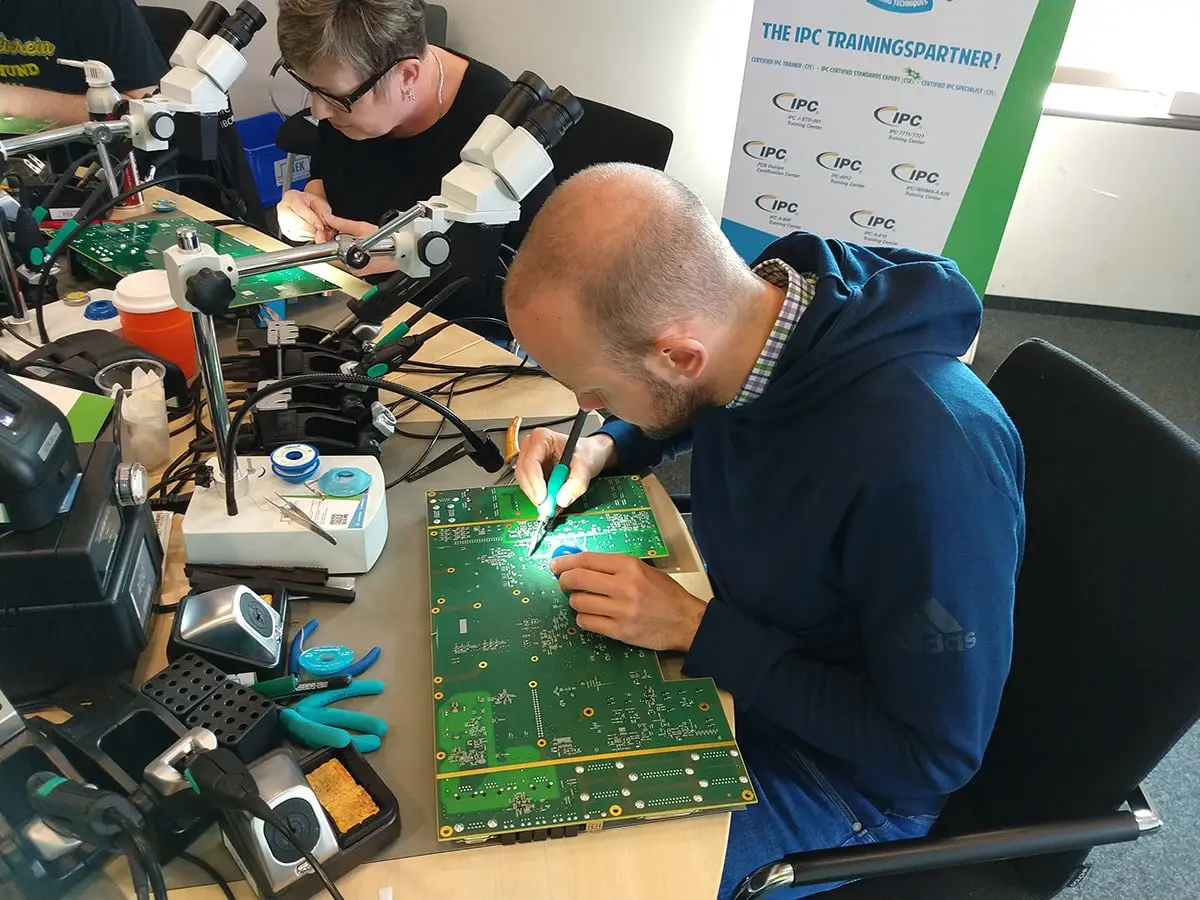Fifteen years ago, IPC introduced the terms CIS and CIT. CIS stands for Certified IPC Specialist and CIT for Certified IPC Trainer. The abbreviations have become concepts within the electronics world. We have years of experience with these two certifications. There are 2 levels, namely CIT, the trainer, who is certified by a so-called Master IPC trainer, or MIT. Someone who, according to IPC, is authorized to train specialists. With obtaining his certificate, he gets access to create a class in the database at IPC and to register participants and conduct training courses. He is also provided with all materials that are necessary to perform this training, to train and certify people. That is the competence that CIT offers which is unique. When we talk about CIS, Certified IPC Specialist, we are dealing with someone who has followed the training, the Certified IPC Specialist training, at a CIT, and who has passed it successfully. This can be a theory training, but it can also be a practical training. In any case, it is someone who has learned during how to handle the IPC document, the IPC standards and, if it is practical training, how to put it into practice and how to perform certain actions.
Within the companies you see that both CIT and CIS certified employees are emplyed, there is clearly always someone who uses the standards during his daily work for assessing solder connections, for assessing printed circuit boards or for carrying out practical actions. Although with regard to CIT it was actually the intention of IPC that those people would train specialists in their own company, in practice it was clear that a number of companies did not want to employ a trainer. One employee trained as a trainer, as a point of contact for the group of specialists. To have someone who would be above that and be seen as the head of the specialists and who is the contact person within the company. If there are questions, conflicts within the group, the trainer makes the decision whether this is the correct interpretation and is seen as a point of contact for customers or suppliers because he is certified as a trainer. That gave a bit of added value for customers or suppliers, a bit of recognition, I now talk to someone who knows what he is talking about. This is actually a use of the certificate that it was not intended for. That is why IPC has decided to add a third training and that is the CSE (Certified Standard Expert). This is a training for someone who is a specialist in the interpretation of the standards. So, this is someone who has a thorough knowledge of the IPC standards, and in principle fulfills the same role as the point of contact for the own club, the own group of people, the own group of specialists within that company. But also, externally for the suppliers and for possible customers as a point of contact. So basically, a role that was already played by the CIT but then as a new certification. Because this person is not authorized to train, he will not receive a trainer kit, nor will he receive the materials to carry out such training, and therefore has no possibility to register participants. That is the difference with the CIT. The concept that IPC has drawn up for this is a bit different from the regular CIT and CIS training courses, where the standard is discussed. Here it is assumed that someone already has experience, who actually knows the standards anyway and therefore shows in a number of exams that he has knowledge of these standards. So, someone who is being trained as a CSE must be properly trained by a trainer.
Before he can do his certification, he has to take his exams to get his certificate.






